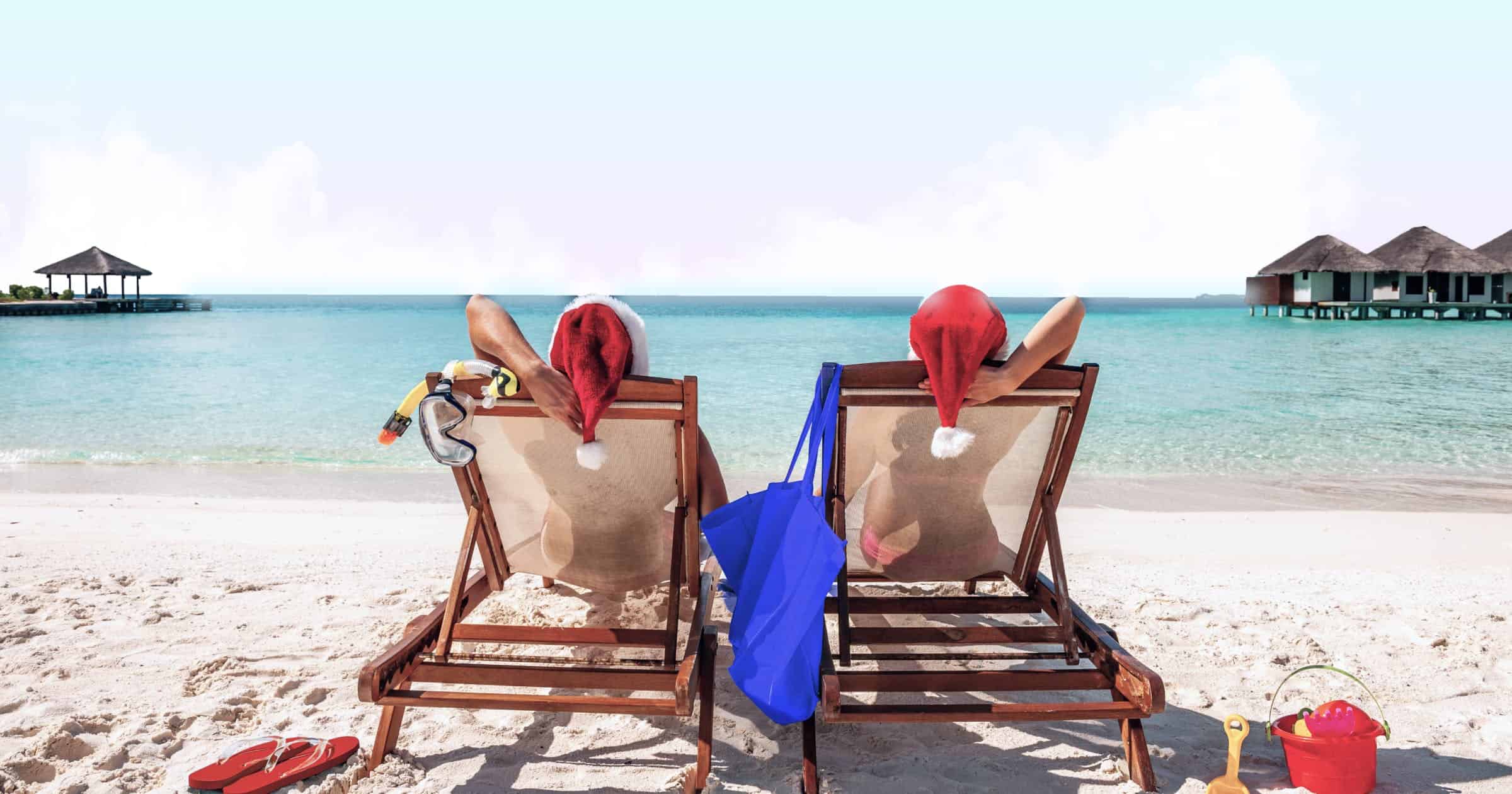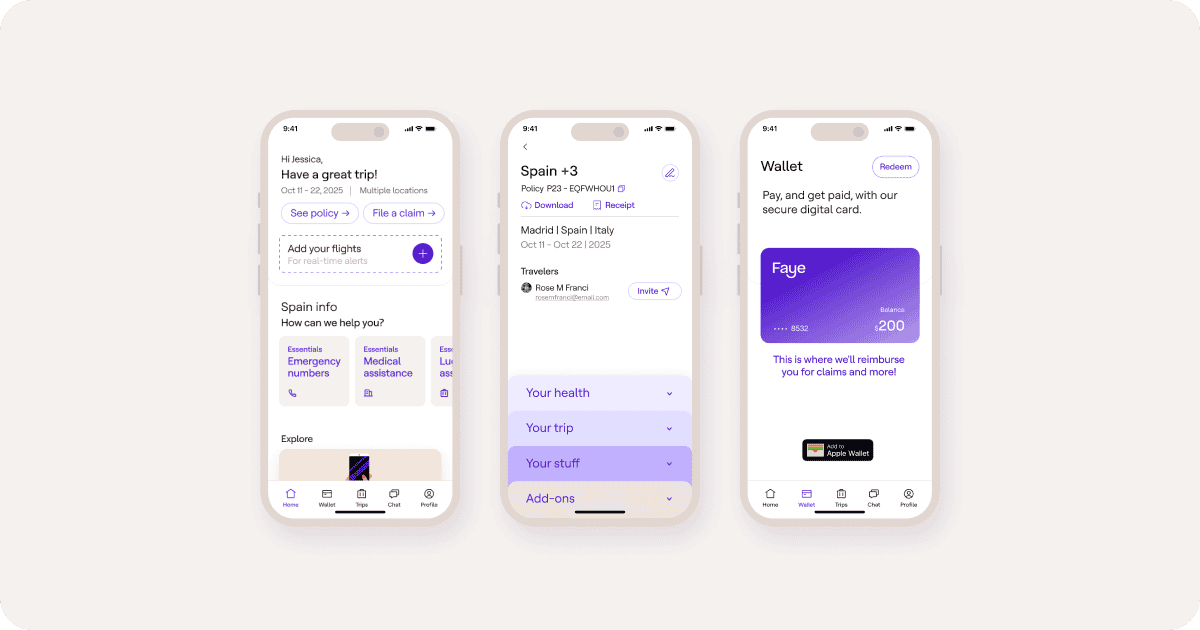After a whirlwind two years in travel, we decided to survey how Americans really feel about trip taking, along with their holiday plans and spending habits. The top takeaways:
- Travelers are more afraid of losing their luggage than contracting COVID-19
- 40% of Americans are spending up to $8K per trip
- 50% of trip takers say the cost of travel is negatively impacting their mental health
The results, unpacked
With respondents spread out across the U.S., results indicate a continued growth trajectory for travel in a post-pandemic environment, despite inflation and recessionary concerns.
Noteworthy is that in reaction to the travel ‘celibacy’ imposed by COVID-19, 38% of Americans say they’d choose travel over sex highlighting the importance consumers place on travel in regard to their well being.
And though the volume of travel overwhelmed the industry this summer, the mishaps that took place aren’t holding travelers back this coming season.
Holiday travel intent is at a high, but at what cost?
The most popular winter holiday for travel among Americans will be Christmas, with 84% planning to take a trip while 72% say they will be traveling for Thanksgiving and 58% intend to travel over New Year’s Eve.
With travel intent high, fears are mounting over the anticipation of potential mishaps. In fact, Americans are more afraid of losing their luggage this holiday season than contracting COVID-19, though coming down with the virus is still a top 5 travel worry.
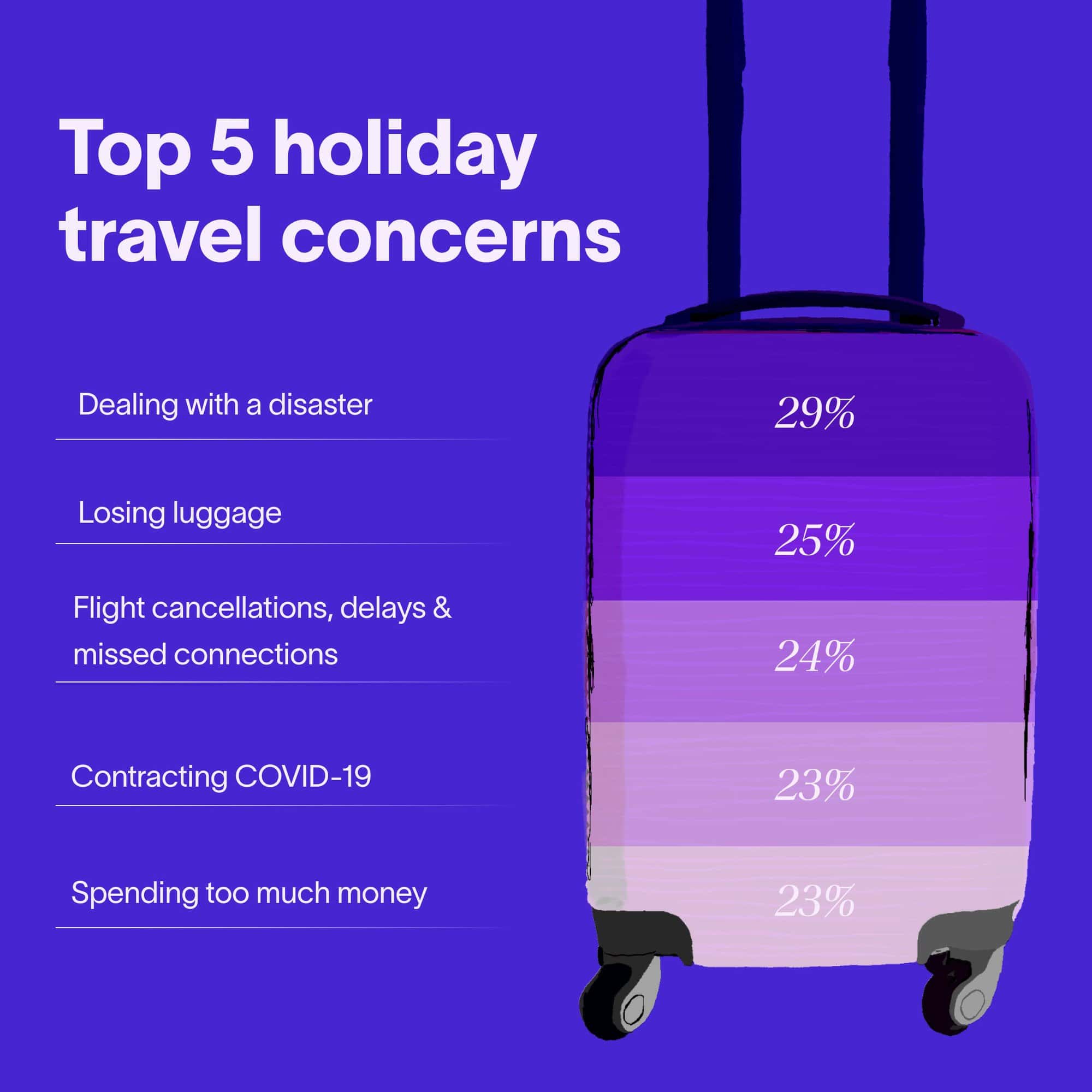
Concerns over inflated prices have become so serious that half of survey respondents reported that the cost of travel is negatively impacting their mental health. Even with these concerns and overall economic uncertainty, travel spending isn’t slowing down: 40% of Americans are spending $5-8K on international trips.
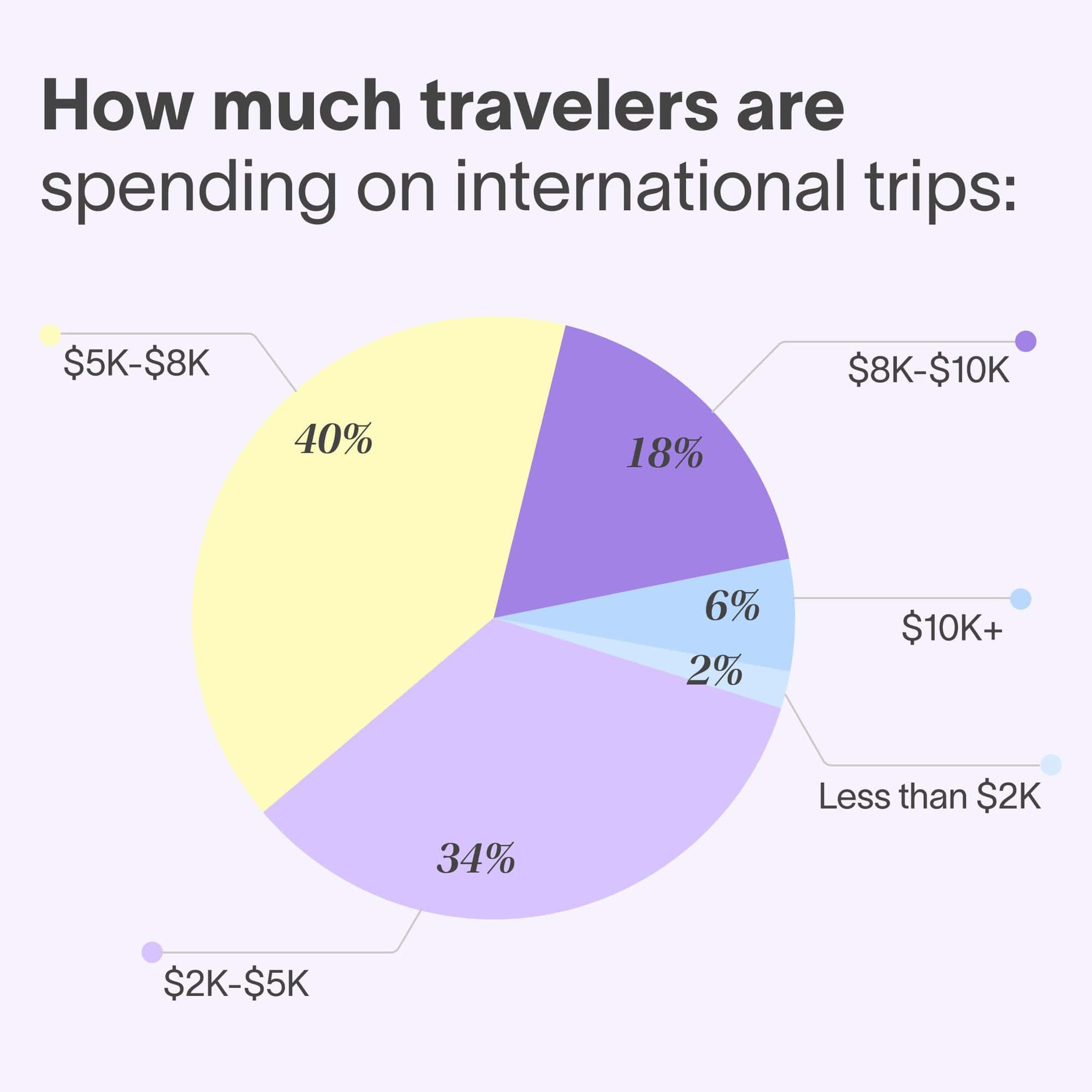
Americans are crashing with family & friends to save on travel costs
Here are the top 5 ways U.S. travelers are cutting travel costs:
- Staying with friends/family to save on accommodations (37%)
- Traveling during off-peak times (36%)
- Cooking at accommodations rather than eating out (36%)
- Going to location destinations that are “off the beaten path” (32%)
- Packing light to cut down on baggage costs (28%)
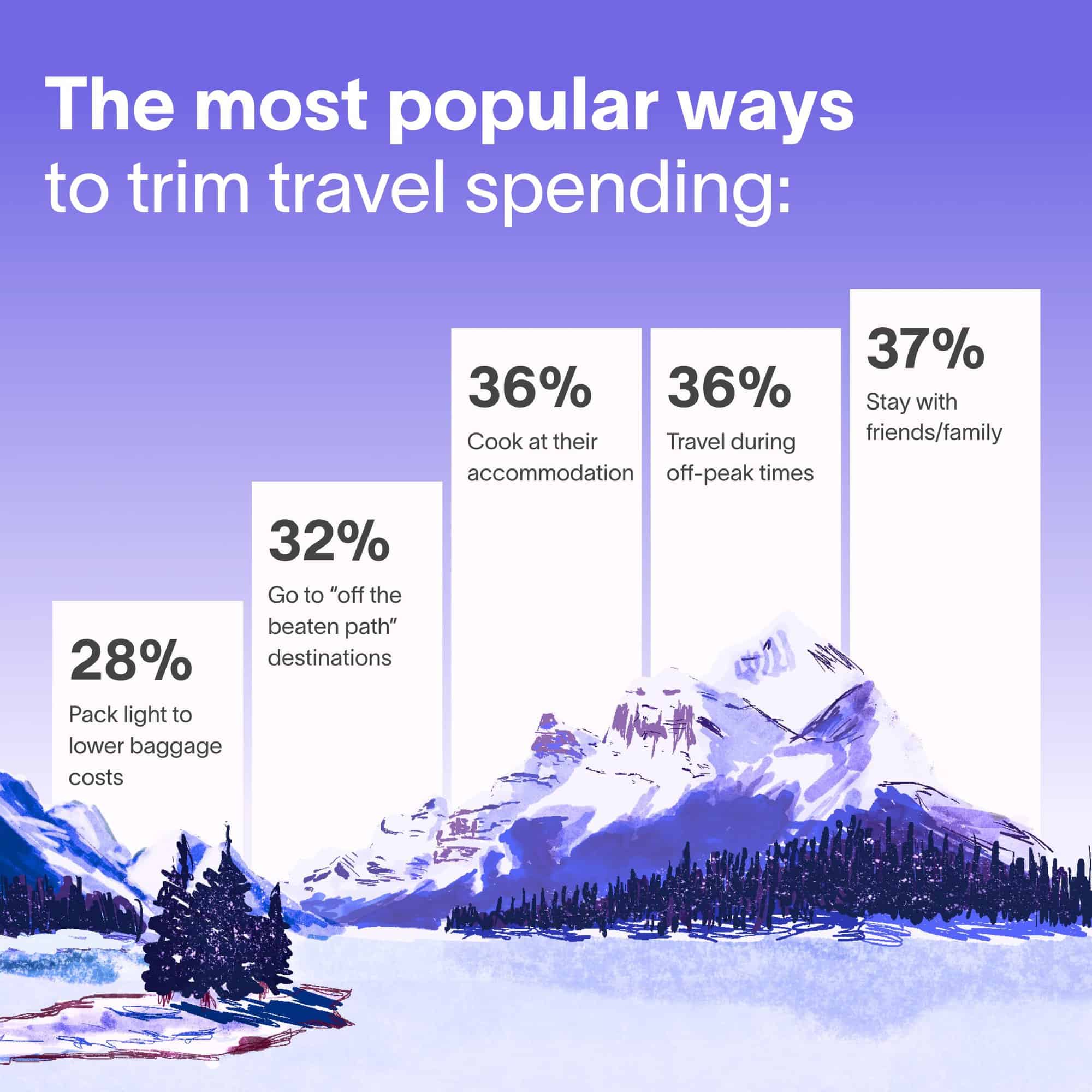
Elad Schaffer, Faye co-founder & CEO shares his insights: “Travel is booming, even with worries over costs, fear of losing luggage and flight delays. Based on the numbers, consumers still plan on traveling this holiday season and beyond, meaning that now more than ever, the hospitality industry must step up to adapt to the next chapter of travel. Providers must acknowledge the need to implement innovations that address growing pains in order to pave the way for a smoother consumer travel experience for the remainder of this year and into 2023.”
The next chapter for travel
At this stage in the industry’s post-pandemic evolution, Americans list the following as the 5 worst aspects of travel: crowded modes of transportation (40%), hidden fees (39%), expensive flight tickets (37%), delays (36%) and crowded waiting areas (32%).
As for what’s to come in 2023, 73% of Americans are strongly concerned that the country’s current economic environment will damage their financial ability to travel next year.
One thing’s for sure, Faye will be there every step of the way to protect adventurers, from the little details to the big destinations, and every moment in between

